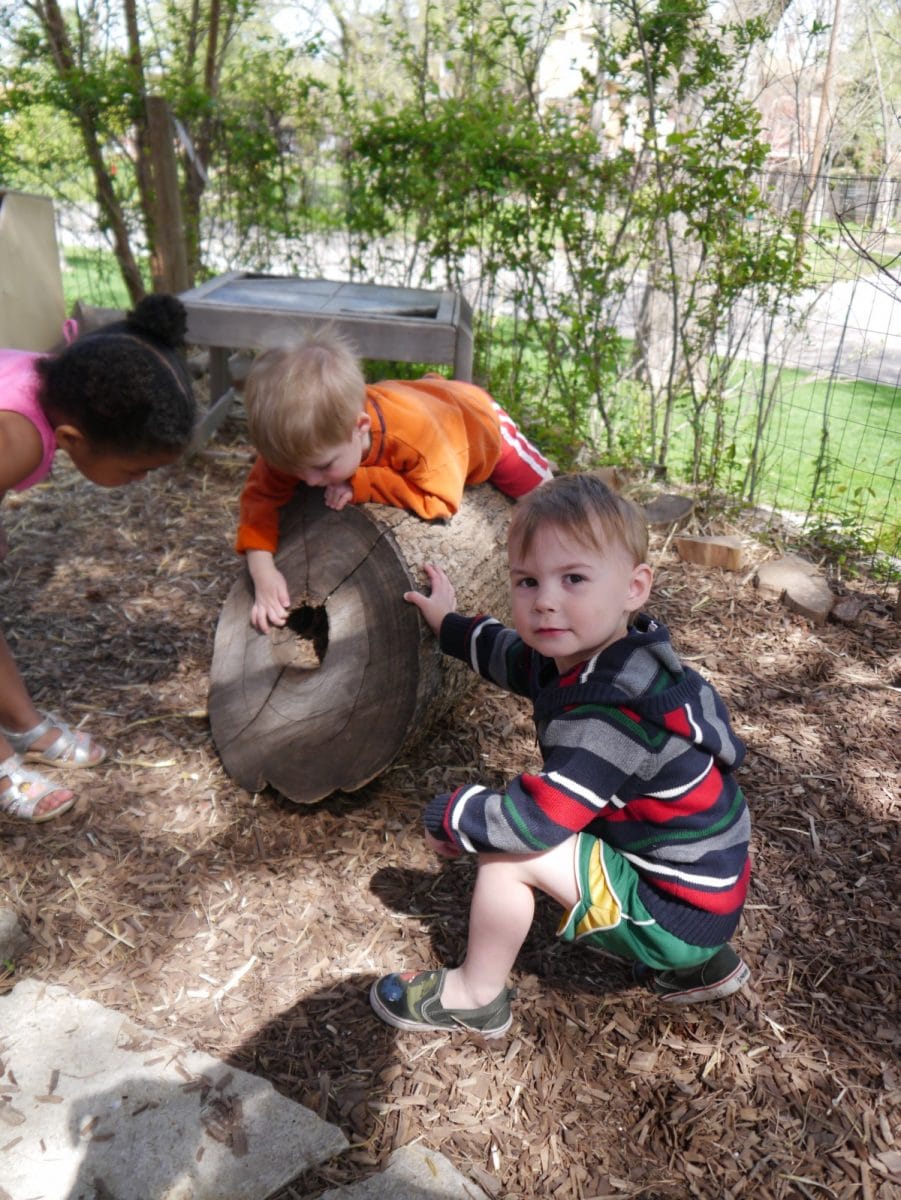This Would Never Have Happened Indoors: Holistic Skill Development and Child-Led Learning in Nature Explore Classrooms

This is the seventh in a series of “Roots in Research” blog posts, in which we summarize key findings of research conducted by Nature Explore staff and our colleagues at other institutions.
The Nature Explore program team spends a great deal of time celebrating the ways in which outdoor learning and the special features of Nature Explore Classrooms foster holistic skill development and child-led learning experiences. We witness this, anecdotally, on a daily basis. Now, a research study conducted at a Nature Explore Classroom in Minnesota describes these benefits.
The results are profound. The research indicates the positive influence of child-initiated experiences, ample opportunities to build skills while experiencing a combination of designated interest areas, and readily available open-ended natural materials.
Takeaways to consider as you establish and refine YOUR program:
- The Nature Explore Classroom produced significant changes in how children and teachers perceived the use of outdoor spaces. Teachers saw the outdoors as a place for children to explore, develop complex play themes, experience rich sensory input and find focus in a less confined space. They discovered it is a place of learning and focus that offers opportunities that may not be available in the indoor classroom.
- The Nature Explore Classroom’s high level of child-initiated play yielded a significant impact on children’s skill development. Researchers observed a wealth of development in areas including social/interpersonal skills, gross and fine motor skills, language and literacy, math, science, construction/engineering and visual spatial skills. The Nature Explore Classroom proved to be a rich environment for multiple-domain learning.
- Data demonstrated that teachers used guided observation to encourage children’s explorations and skill development. The teacher’s primary role was to support learning and give children control over process.
- Data also offered numerous observations of children’s risk-taking. Children in Nature Explore Classrooms have ample opportunities to develop body competence and experiment with appropriate risk.
- Use of the Nature Explore Classroom design guiding principles supported children’s freedom to choose what, how, and where to play with materials of their choosing.
- Teachers reported that children with special needs (i.e. sensory-integration, autism and language delays) who struggled indoors were often reported calmer and more focused outdoors.

